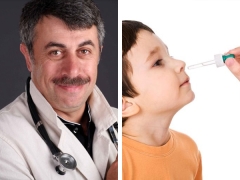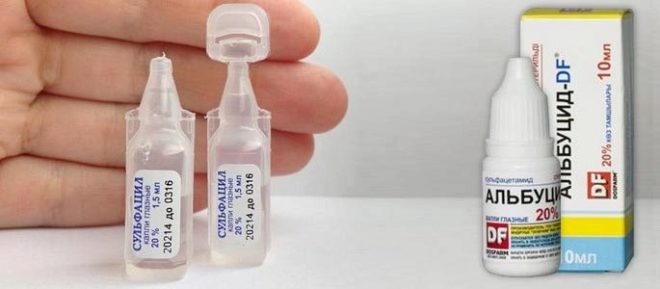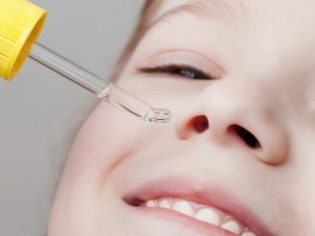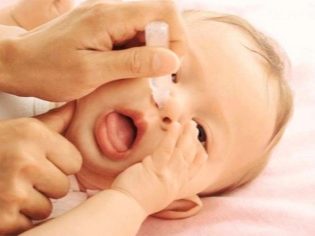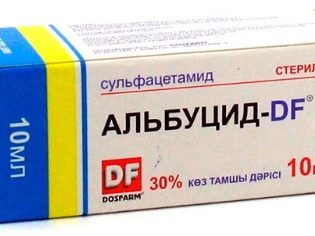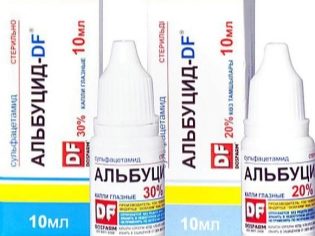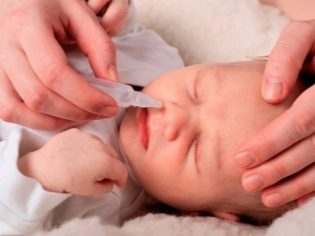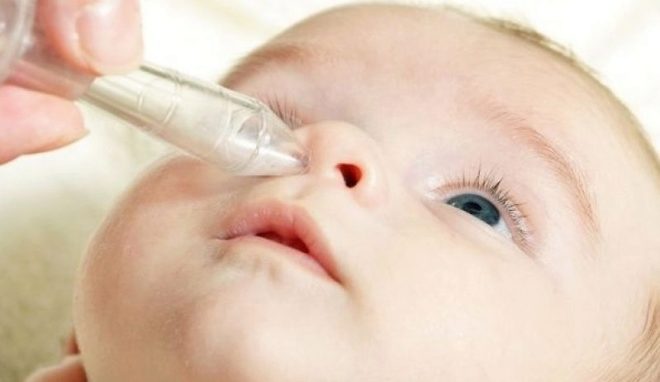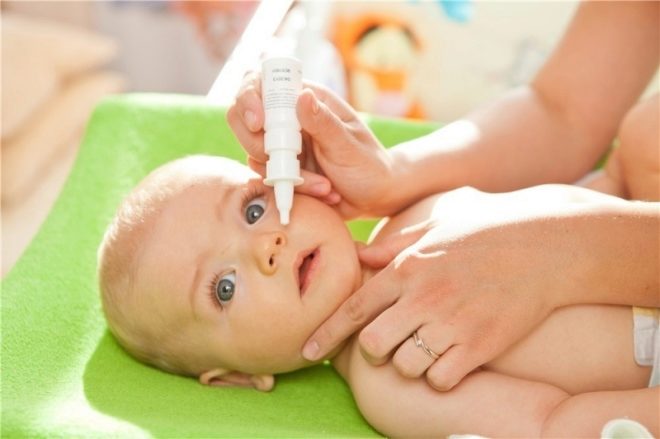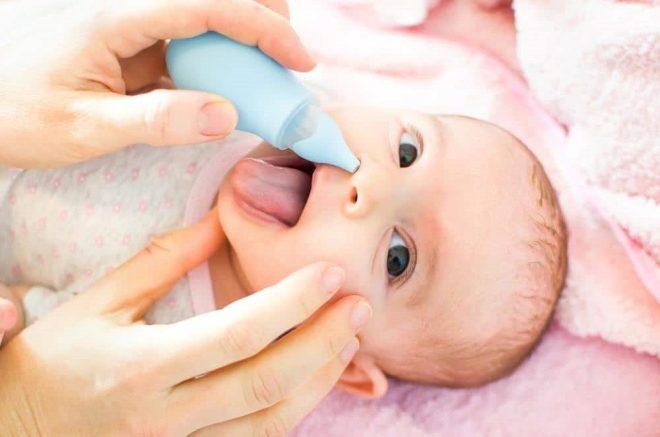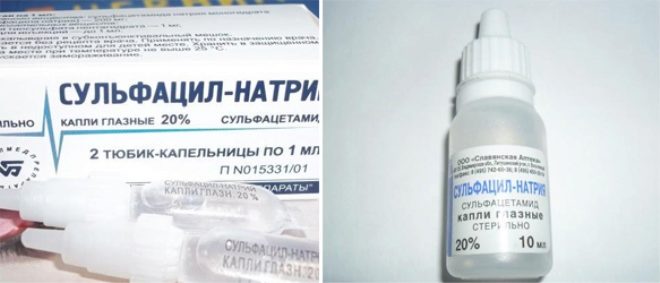Dr. Komarovsky about Albucid’s instillation into the nose for children
For some reason it seems to me that this is possible only in Russian medical practice and nowhere else. It is unlikely that at least one country in the world will "guess" to use eye drops in the nose! This is about "Albucid".
This drug is often advised by pediatricians to their young patients from birth from a cold.
Naturally, parents who think and analyze, naturally come to the logical question, is it possible to drip eye drops into your nose and, most importantly, why do you need to do this?
In this article we tried to consider two points of view - supporters of “Albucid” nasally and opponents of this method of treating rhinitis, which include the reputable doctor - pediatrician, TV host and author of books on children's health Yevgeny Komarovsky.
Read more - in the next video.
About the drug
To understand the intricacies of the application, you need to know exactly what is "Albucid"And how it works. So these are drops. Eye drops, which are a bactericidal agent of sulfanilamine group. Despite the word “bactericidal”, “Albucid” is not considered to be an antibiotic, as many parents mistakenly think. Rather, it can be compared with an antiseptic, but also rather arbitrary.
Sodium sulfacyl (this is the main active ingredient of the droplets) is effective against many pathogens such as cocci, sticks, chlamydia and Toxoplasma.
Drops are well proven as an ophthalmic drug, they quickly cope with germs that cause eye disease. Maybe for this reason, or maybe for some other reason, pediatricians once decided that sodium sulfacyl in the nose would also “work” as effectively.
Their position explains the purpose of eye drops in the nose by the fact that the microbes in the eyes and in the nasal passages are about the same.
The question is, of course, controversial, but the fact remains: children are prescribed "Albucidum" for the treatment of rhinitis in cases of suspected bacterial rhinitis. By the way, bacterial rhinitis in children is rare, and eye drops are often prescribed.
Many doctors claim that "Albucid" is effective for prolonged rhinitis, when other drugs do not help and for purulent rhinitis. Some experts even advise parents to drop sodium sulfacyl to a child when rhinitis begins, even if they see that the baby has a viral infection and they are well aware that no bactericides and antibiotics have any effect on viruses.
Official instructions, data on clinical trials of the drug, information of manufacturers - none of these sources indicates the possibility of using drops in any other way except in the eyes. The nasal use of "Albucid" is not mentioned anywhere.
Opinion of Dr. Komarovsky
The other half of the doctors consider “Albucid” a waste of money (even if small) and the time it takes for such procedures. Evgeny Komarovsky, an authoritative specialist in the field of pediatrics, adheres to precisely this position.
He refers to the fact that sulfacyl sodium is better than other drugs from the range of sulfonamides soluble in water, this explains its high effectiveness against bacteria in the moist environment of the eyeball. But when the drug gets into the nose, it simply does not have time to dissolve and begin to act, as it quickly turns into the pharynx and then into the esophagus if the child swallows it.
This drug was recently released in the form of intravenous injection solution, now this form is discontinued, only eye drops remain.
However, the rich history of this famous drug is silent about the nasal application.
When asked why the doctors prescribe “Albucid” for a cold, Komarovsky answers that, most likely, it’s about imitation of treatment. A runny nose in a child most often, or more precisely in 95% of cases, is viral. And the doctors know this, as they know that it is not necessary to drip anything in case of a viral rhinitis, a rhinitis in this situation is a manifestation of the work of immunity.
But if the doctor honestly tells the mother of the baby that he will not prescribe anything, the parent may find the doctor incompetent and go with complaints to higher authorities. A pediatrician, of course, is the easiest way to prescribe something that may not be beneficial, but no harm is expected either. And he writes "Albucid".
Mum at business - drips three times a day, treats. The child recovers from his viral rhinitis independently, as it should be. No one questions the competence of the doctor, because the parents are sure that it was Albucid that helped the little one to recover. Everyone is happy.
Komarovsky recommends not to waste precious time on instilling eye drops not for the intended purpose, but to treat rhinitis correctly, creating good conditions for the recovery of the child.
Fresh air, wet cleaning in the apartment, a sufficient level of air humidity (50-70%), air temperature from 18 to 20 degrees - such a microclimate will help to cope with a cold faster.
In extreme cases, as prescribed by a doctor, nasal drops should be used, such as Nazivin, Nazol.
Sometimes some doctors prescribe instead of "Albucid". "TobrexAnd Ophthalmodec. Both of these drugs are also exclusively ophthalmic, and are not intended for instillation into the nose.
